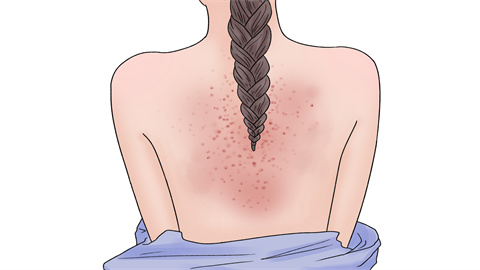What are the characteristics of HIV rash?
HIV patients' red rashes generally present with characteristics such as widespread rash distribution, variable morphology, accompanying itching, recurring episodes, and difficulty in resolution. If any abnormalities are noticed, prompt medical consultation is recommended. Detailed analysis is as follows:

1. Widespread rash distribution: HIV patients' red rashes usually appear on multiple areas of the body, including the trunk, limbs, face, and neck, rather than being confined to specific regions.
2. Variable morphology: These rashes vary in appearance and may manifest as maculopapular eruptions, papules, or small blisters. Their color may vary from red, pink, to dark red, and they vary in size.
3. Accompanying itching: The rashes in HIV patients are often accompanied by significant itching, which may interfere with patients' daily life and sleep quality.
4. Recurrent episodes: These rashes may recur repeatedly; even after temporary resolution following treatment, they may reappear shortly afterward, causing ongoing discomfort to the patient.
5. Difficulty in resolution: Compared with common skin conditions, rashes in HIV patients tend to be more resistant to resolution, and even with conventional skincare methods or medications, the effectiveness may be unsatisfactory.
If you suspect yourself or someone else may have contracted HIV and experiences the aforementioned rash symptoms, it is important to visit a hospital promptly for HIV testing and professional consultation. Additionally, maintaining good personal hygiene habits, avoiding sharing personal items with others, and reducing infection risks are advised.








